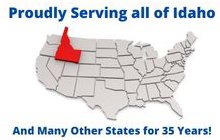In the ever-evolving landscape of real estate, access to financing stands as a pivotal factor shaping the dreams of aspiring homeowners. Among the diverse array of mortgage options, FHA loans emerge as a beacon of opportunity for a specific segment of the population. These loans, backed by the Federal Housing Administration, come with distinct qualifications and benefits, weaving a narrative of accessibility and support for those navigating the path to homeownership. Interwest Mortgage can help you navigate all loan options, including FHA.
FHA loans are designed to extend a helping hand to individuals who may face barriers in obtaining conventional loans. As the doors to homeownership swing open, it’s crucial to understand the criteria that define eligibility for FHA loans. Qualification isn’t a one-size-fits-all scenario; it’s a nuanced consideration that takes into account various factors.
FHA as a Backbone in Lending
The foundation of FHA loan eligibility rests on the principle of primary residence. To qualify, applicants must intend to live in the property they are financing. This requirement aligns with the FHA’s mission to facilitate affordable homeownership for individuals and families, emphasizing the tangible benefits of having a place to call home.
Creditworthiness, a cornerstone of mortgage approval, is approached with a degree of flexibility in the realm of FHA loans. While conventional loans often demand higher credit scores, FHA loans extend a lifeline to those with credit histories that may be considered less-than-perfect. The qualification threshold is attainable for individuals with credit scores that might pose challenges in other financing avenues, fostering inclusivity in the world of homeownership.
Money Matters
Income is another dimension of the eligibility tapestry for FHA loans. While there isn’t a strict income limit, the FHA imposes debt-to-income ratio requirements to ensure that borrowers can comfortably manage their mortgage payments. This measured approach acknowledges the diverse financial profiles of potential homeowners, recognizing that stability and sustainability are key considerations in the loan approval process.
Down payment requirements stand as a distinctive feature of FHA loans, differentiating them from some conventional mortgages. FHA loans offer a lower barrier to entry, with down payments often set at a more manageable percentage of the home’s purchase price. This feature is especially beneficial for individuals who may find accumulating a substantial down payment challenging, opening doors that might otherwise remain closed.
Who’s Eligible?
The eligibility tapestry for FHA loans extends its reach to individuals who may have encountered financial setbacks, such as bankruptcy or foreclosure. While conventional loans may impose longer waiting periods for those with such events in their financial history, FHA loans often present a more accessible timeline, allowing individuals to embark on the journey to homeownership with renewed hope.
As the criteria for FHA loan eligibility take shape, it’s essential to explore the benefits that accompany this avenue of financing. The FHA’s commitment to promoting homeownership among diverse demographics is evident in the tangible advantages these loans offer.
A Great Option for Many
One notable benefit is the potential for lower interest rates on FHA loans compared to some conventional mortgages. This can translate into significant savings over the life of the loan, making homeownership more economically viable for those who qualify.
The down payment flexibility of FHA loans, with requirements often set at a modest percentage, is a practical advantage for individuals who may not have substantial savings earmarked for a home purchase. This feature aligns with the FHA’s mission to bridge the gap for aspiring homeowners, offering a more accessible entry point into the real estate market.
FHA loans also come with built-in protections for borrowers, including limits on closing costs that provide an additional layer of financial relief. This can ease the burden of upfront expenses associated with home buying, fostering a more manageable financial landscape for those embarking on this significant milestone.
Making Dreams Come True
The inclusion of FHA loans in the spectrum of mortgage options underscores the importance of tailoring financing solutions to the diverse needs of the population. While they may not be the perfect fit for every aspiring homeowner, their role as a catalyst for accessibility and inclusivity in the real estate realm is undeniable.
FHA loans offer a pathway to homeownership for individuals who may face barriers in obtaining conventional financing. The eligibility criteria are crafted with a nuanced understanding of the diverse financial landscapes of potential homeowners, fostering a sense of inclusivity and opportunity. The benefits of FHA loans, from lower down payments to protective measures for borrowers, contribute to a narrative of empowerment and accessibility in the realm of real estate financing. FHA loans emerge as a thread woven into the fabric of opportunity, inviting a broader spectrum of individuals to step into the world of homeownership. To find out more about FHA loans and other options, contact Interwest Mortgage today.





